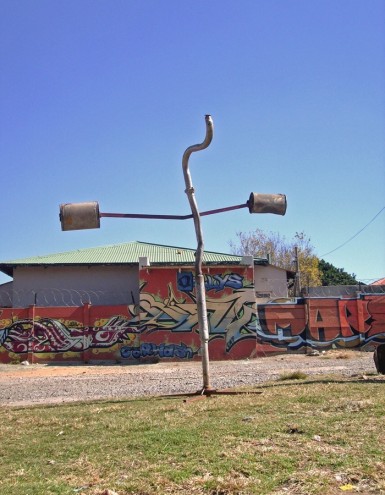For Thorsten Deckler of Johannesburg-based 26’10 South Architects, design can be found in the most seemingly mundane places, such as the side of the road. The trick is to stop and pay attention.
Much of 26’10 South’s work results from engaging with the community on projects such as in-situ upgrades to low-cost housing. Deckler, who will be speaking at the Architecture ZA conference in Johannesburg in September, advises emerging professionals to seek out inspiration from their everyday surroundings, instead of trends that come and go.
“The people I respect and admire are not really trendsetters, their work sets them apart from trends by addressing more primary or universal aspects of architecture like scale, light, materials, proportions, habitation and occupying the landscape.”
He offers this advice for young architects:
1. Look outside the industry
Deckler is inspired by the creativity that arises out of scarce resources, which is a common situation in South Africa. He points out one in particular: “The unusual structures made from old exhaust pipes that identify informal exhaust repair services next to the road are an excellent example of everyday design practice that can inspire creativity.”
To develop this keen awareness, a designer requires a thoughtful eye and a willingness to welcome valuable insight from individuals outside the industry.
“There are many ordinary citizens, who often under difficult circumstances make sophisticated design decisions that are often not recognised by trained designers.”
2. Learn to embrace complexity
Although individual parts add up to the whole, the whole is complex and not simple. “A problem cannot be reduced to one reading or solved by one idea alone,” Deckler says. “If you don’t understand this concept, watch all the episodes of The Wire series.”
3. Draw, draw and draw some more
“The inaccuracy of a hand drawing often helps you to ‘lie a little’ to pursue ideas, rather than technical solutions.” Deckler explains that in drawing there is a more direct connection between your hand and brain, which allows you to develop ideas and react to them quickly.
4. Know how things work
“If you do not know how things work, make a point of finding out,” says Deckler, adding that “there is no excuse not to do this”.
5. Integrity is key
“Don’t try to be nice or to be liked by your contemporaries – be tough but fair and act with integrity,” advises Deckler. While this applies to most aspects of life, like parenting, it also holds true to the trench warfare-like experience of building a building.









